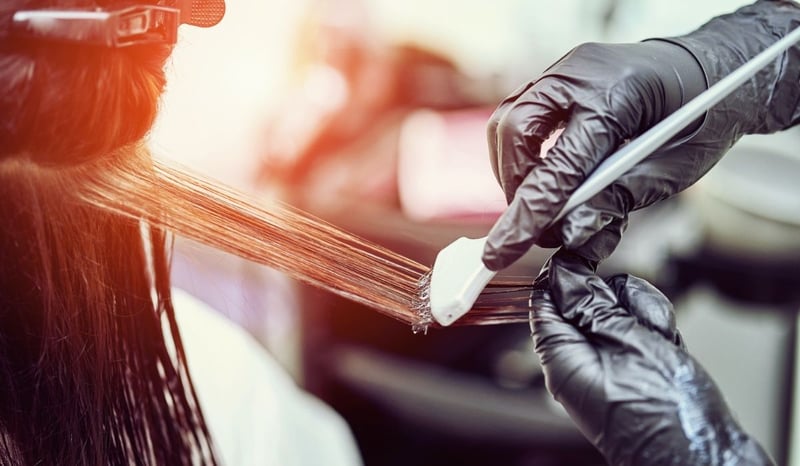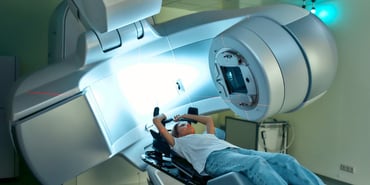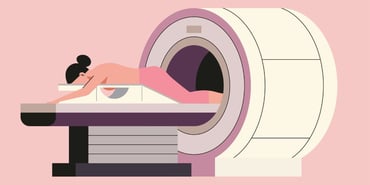
Breast cancer is a major concern among women of all ages. Prior studies focusing on the association between hair dye and breast cancer have come up with mixed results until recently, so the news can be confusing. That's why one group of researchers decided to address the topic using sisters by recording the results over an eight-year period.
These researchers received more definitive results than others have in the past, and they were able to draw a clear link between cancer-causing chemicals in the permanent hair dye and the risk for breast cancer. So if you've heard of past studies on the topic and are asking, "Does Hair Dye Cause Breast Cancer?" you'll want to read about the conclusions found by this new study to get the facts.
About the Sister Study
Referred to as the Sister Study, a recent government-funded research study on the connection between hair dye and breast cancer was conducted by the National Institute of Environmental Health and was first appeared online on December 3rd, 2019, in the International Journal of Cancer. The study involved over 46,000 women between the ages of 35 and 74 who were cancer-free but had a sister with breast cancer. It concluded that women who use permanent hair dyes and hair straighteners have a higher risk for breast cancer.
Permanent hair dye and breast cancer
The press release in the link above reports that women who used permanent hair dye regularly in the year prior to enrolling in and participating in the study were more likely to develop breast cancer than women who did not.
In addition, African American women have a higher risk of developing breast cancer if they regularly use permanent hair dye. (In both instances, the term "regular" refers to using the permanent dye at home every five to eight weeks or more.) The Sister Study found that regular use among African American women was associated with a 60% increased risk of breast cancer, while the same amount of regular use among white women was associated with an 8% increased risk of breast cancer.
It's important to note that these figures are related only to the use of permanent hair dye. The study found little to no risk associated with using temporary or semi-permanent hair dye.
Hair straighteners and breast cancer
Researchers conducting the Sister Study also found an association between the use of chemical hair straighteners and a higher risk of breast cancer. Most hair straighteners contain formaldehyde, a carcinogen, or a substance that is known to cause cancer. Straightener use is more common among African American women than it is among white women, but the risk of developing breast cancer from using hair straightener is not necessarily higher for African American women than it is for white women.
Chemicals in hair dye
What are the chemicals in hair dye that cause cancer? BreastCancer.org responds to this question when it writes that research shows there are over 5000 chemicals in haircare products, including some that are classified as hormone disrupters (also referred to as endocrine disrupters). These hormone disrupters, the article explains, can affect how estrogen and other hormones act in the body. The hormone disrupters actually block or mimic estrogen and other hormones, and this phenomenon throws off the body's hormonal balance.
Hormone-receptor-positive breast cancer and permanent hair dye
Permanent hair dye use may be of particular concern to women with hormone-receptor-positive breast cancer. Estrogen can actually make hormone-receptive positive breast cancer develop and grow, BreastCancer.org tells us. Because of this fact, many women make an effort to limit their exposure to these hormone disrupters, which are chemicals that can behave like estrogen.
Other chemicals in hair dye
Besides hormone disrupters, there are other types of cancer-causing chemicals in hair dye, BreastCancer.org reports. Some research studies have found that these other chemicals cause mammary gland tumors in rats.
The takeaway:
- There is a higher breast cancer risk associated with permanent hair dye use.
- The risk is greater for African American women who use permanent hair dye frequently.
- Hair straighteners also contain chemicals that place the users of these products at higher risk for breast cancer -- but so far there does not appear to be a considerable difference in the level of risk for African American women and white women who use hair straighteners.
Where to go from here
The Sister Study draws a definite link between permanent hair dye use and breast cancer risk. However, The women in the study were already at a higher risk of developing breast cancer since their sister had the disease. There are are more studies to be done to answer questions such as:
- Should there be recommended changes to the products or to the usage recommendations?
- Is it safer to get your hair dyed at a salon rather than at home, or is the risk the same?
- Should there be required warning messages on boxes of hair dye and straightener about the link between permanent hair / hair straightener and breast cancer?
- To what extent should women change their hair dyeing and straightening habits?
Conclusion
Despite the link between breast cancer and these haircare products for women, experts are reluctant to say that women should stop using them entirely. They emphasize that there are actually several factors which increase the risk of breast cancer and other types of cancer. In most cases, a single factor such as dyeing your hair with permanent dye does not lead to a breast cancer diagnosis. However, after the recent Sister Study, experts draw the following conclusions with confidence:
- Some women are more at risk for breast cancer than others
- Risk depends upon the type of product -- whether it is a permanent dye or semi-permanent dye, or whether it is a hair straightener
- The chemicals used in hair straighteners and in permanent hair dye do not work alone to cause cancer Other factors such as family history, diet, or smoking contribute to your risk of developing breast cancer.
At Compass Oncology, we specialize in providing the latest information on innovative cancer treatments, as well as the highest level of supportive care systems and services at our centers. If you are facing a breast cancer diagnosis, or if you would like to learn more about the potential connection between hair dye and breast cancer, please contact us.




